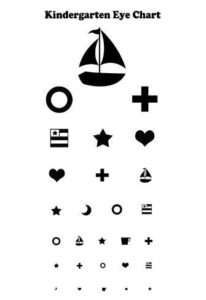Graduation.
You see the word and you probably think about a high school, college, trade school, or military ceremony. Grand events with hundreds, if not thousands of people sitting in crowded auditoriums or hot stadiums anxiously awaiting that one name to be called so they can cheer for those few seconds. These precious moments should be celebrated, especially by those who’ve worked hard to get to that life-changing point in their lives.
I appreciated all my graduations—from high school, nursing school, and college. They were snapshots of how far I’d come and the springboards to where I planned to go.
My chest swelled with pride as I heard my name, then the cheer of my family and friends. There’s simply nothing like it. Thinking about it as I write this, has me smiling.
Still, the graduation that will have me smiling this month isn’t any of these. Or anywhere close to these.
No, the graduation ceremony I attended at the end of this school year was my fifth-grade son’s.
Yes, at his school, they do elementary graduation—sending those big fifth graders off to the world of middle school. It’s a basic rite of passage and one we’ve all seen…and dreaded, because let’s face it: middle school is an incredibly awkward, exciting, weird, interesting, introspective, scary time of life. It can also suck really bad, but that’s another post.
It’s a basic rite of passage and one we’ve all seen…and dreaded, because let’s face it: middle school is an incredibly awkward, exciting, weird, interesting, introspective, scary time of life. It can also suck really bad, but that’s another post.
Does moving from fifth to sixth grade really require a “graduation” ceremony?
I used to think it was all ridiculous. A way to fill the hours of that last day of school for the ready-to-get-me-out-of-here students and more photo ops for the parents.
But then something changed in my world and made me open my eyes a bit more to understanding the importance of this day.
In May 2012, a three-year-old boy and his 20-month-old sister walked through our front doors as our new foster children. We’d wanted to expand our family for years, and after one failed foster/adoption, we wanted to try again.
Thankfully, with the help of amazing social workers and CASA volunteers, by the end of that year, our family officially went from four to six.
As beautiful smiles as our children had, we could tell our son had trouble expressing himself.
At first, we thought he was scared, confused, worried. We were strangers, and he and his sister had been through more than we could have imagined. Of course he might be tentative to speak up.
Then we thought they might have spoken another language than English at home. We tried a few. He looked more confused.
Within a day, we realized why he spoke so little: he had about a 100-word vocabulary.
This almost-four-year–old boy knew no shapes or colors. He didn’t know the alphabet, and he couldn’t count past three. He knew what an apple and banana were, but certainly couldn’t tell me their colors. He couldn’t identify any other produce or most of the food in our pantry. Whenever he encountered an object he didn’t know, he’d point and say, “This!” or “That!”
The next week, we got him a birthday cake for his fourth birthday and he blankly stared at it. We thought he was overwhelmed. During a trip to Hobby Lobby wherein I pointed to the Christmas trees on display, he shrugged. He had no idea what I meant when I talked about Christmas, July 4th, or Halloween (all decorations were out for those early crafters).
Neither did his younger sister.
To say we were shocked that neither of these children knew what any holidays/celebrations were, would be an understatement.
 At his well exam, we couldn’t get a complete eye test on him because he couldn’t tell us what any of the pictures were on the eye chart. I explained he could see the TV screen from across the room with accuracy.
At his well exam, we couldn’t get a complete eye test on him because he couldn’t tell us what any of the pictures were on the eye chart. I explained he could see the TV screen from across the room with accuracy.
Driving down the street, he’d correctly identify a city bus and a taxi. He could also tell me what every fast food restaurant served and that police cars were bad.
He identified Buzz and Woody from Toy Story and the cars from Pixar’s Cars, but he appeared surprised when watching the movies.
If asked a question, everything was “no” first. Not a disrespectful “no”—more like a defensive “no.” Then he’d relax his eyebrows, cock his head, and look at me with so many questions in his eyes.
My heart simply broke seeing this. I could tell how hungry he was to learn, how many questions he had about the world, and no one in his first four years of life had fed him much more than scraps.
His baby sister watched everything with great wonder as she said very little, but the curiosity about her new world certainly had piqued her interest and she began to open up.
It was immediately apparent we had two intellectually starved children, and we wasted no time addressing it.
I’d take them to the grocery store a few times a week to learn colors and produce and what nutrients the foods gave them. My son would offer to help load up the cart, help me count items, and retrieve things from the shelves for me (e.g., “Can you get me that yellow box of cereal?”). We went to the zoo to learn animals, and I discovered the hippo was his favorite. My daughter loved everything.
My daughter loved everything.
I printed countless sheets from National Geographic Kids for my kids to read about and color various animals.
 And we read—A LOT. Every day.
And we read—A LOT. Every day.
As the weeks, months went by, his hunger never subsided. It felt like we were catching up with four years of intellectual neglect, but every day he “ate” everything we gave him.
She began to speak more, asked more questions.
By the time we got him to pre-K, he was still years behind his peers, but he knew how to behave in class and loved his teacher.
I worried about how the instructor would view him because of his being a foster child (we were able to adopt a few months after school started) and academically lagging.
As it turned out, she’d also adopted her daughter from foster care and knew the journey. She couldn’t have been more nurturing and encouraging. Such blessings.
He thrived, each day a new adventure. Each day a bit more information he tucked into his brain and he’d talk to us about it. Conversations became more than a few words of questions and answers. He began to explain things, tell us longer stories about his day.
Thankfully, we made it to Kindergarten with him a bit more than a year behind his peers. His teacher had a song for everything and always had a smile on her face. He loved school.
When I felt like I couldn’t teach him any more that day, his teacher always had a nugget of wisdom to spark his interest. He completed the year behind his peers, but was making progress catching up.
He made it to first grade. But by mid-year, his teacher sat down with us, extremely concerned. She suggested we consider holding him back at the end of the school term because he was about “four months behind his classmates.”
My husband and I looked at each other and high-fived. “Only four months? That’s awesome!”
Apparently, this really confused her. After working with our son all summer before first grade, we decided not to go into first grade providing his entire academic story. When we told her where he’d started only two years before, she understood why he was behind and appreciated his achievements. So many blessings with this first-grade teacher as she replied with, “OK, what can we do to get him where he needs to be?” She sat with us for a good half hour and made a plan with us to get him caught up by end of term.
We met with the counselor to verify that his 504 coincided with what he needed for success.
Everyone was onboard for his potential. And everyone came through.
By the time he waved goodbye on that last day of first grade, our son had worked his butt off and was officially even with his peers.
His second-grade teacher kept his trajectory going. He struggled with the pace of work, but kept working hard, doing his best. During this year we discovered he was a writer! He always wrote more than other kids when given a writing prompt.
We added some after-school sessions for math as he struggled with numbers. I’d check in weekly with his teacher to keep him going. He finished second grade well and confidently.
With the STAAR test approaching in the third grade, his teacher’s concerns for his education shifted slightly. Yes, she encouraged him with the everyday work, but sadly, she had to emphasize the STAAR test’s importance.
I explained to him it was one test. It didn’t decide anything about him going to fourth grade.
He kept absorbing knowledge. Kept learning. Kept reading. Kept (reluctantly) practicing multiplication tables.
He didn’t pass the STAAR, but he made solid B’s for the school year. We called that a success.
Onto fourth grade—another STAAR testing year. The work not only got a bit harder, but the assignments got longer. He struggled with not being able to finish his work in the allotted time.
I called him my turtle—slow and steady. He’d finish, just not as fast as the other kids.
Midway through the first nine weeks of fourth grade, he had quite a few unfinished assignments. I got a notice from the teacher, voicing his concerns.
My son hadn’t said anything. My guess was that he hoped he could go outside and play like every other nine-year-old and avoid the issue, kind of like chores.
As much as I hated for him to miss playing outside, he had to finish his coursework and learn the importance of following through.
Twice a week, I’d meet him in his classroom and he’d complete his work. I’d help him with assignments when needed, but he’d finish things up on his own with a bit of encouragement.
By the end of the school year, he’d learned how to work a bit faster and could get more of his work done. He needed increasingly less time after school.
Solid B’s for the year. Another win.
At the beginning of fifth grade, we got his STAAR scores. He passed the reading, barely missed passing the math.
PROGRESS!
The fifth-grade instructors decided on a different daily format: students would change classes for each subject.
This worked beautifully for my son. He could get up and move around every 45–50 minutes. He had a different teacher for each class, just like he would in middle school.
The teachers sent out Remind texts about homework assignments—a lifesaver really. I can’t tell you how many times I’d pick him up right after receiving that text and say, “Do you have your math assignment?” The first time I asked, he looked at me like I’d performed some sort of sorcery.
He half-heartedly answered, “Yes.” But when we got home, he didn’t have it. He’d give me this, “Oh well, guess I don’t have homework” hope in his eyes.
And with that, we got back in the car, drove up to the school. I sent him in to get his schoolwork.
As any kid would do to test the boundaries, he tried to dodge homework maybe twice more, but we’d go back and get it.
His in-class work still needed a bit of extra time. The teachers suggested they shorten his assignments so he could keep up. I asked them not to because he could finish it; he simply needed to work slightly faster or go in a day or two a week to complete it.
I kept asking what he needed, if anything, from me to help him out. He said he was OK, as did his teachers.
He approached one of his instructors, asking to skip recess a day or two a week to complete his work in that particular class in which he was behind. When the teacher told me this, I couldn’t believe it. Our son had taken the initiative to complete his assignments on his own. I kept checking in, and they said he was keeping track of what he needed to finish and adjusting his time accordingly.
With six years of schoolwork under his belt, he’s proven to be a solid B student with his grades climbing.
The STAAR came and went, and he passed both—and didn’t just squeak by, but solidly passed.
And now we’re here, at fifth-grade graduation, and I’m not ashamed to say, I was a sobbing mess to see his name announced.
Seeing how far your child has come and recognizing the obstacles they had to jump, climb, and crawl over to get where they are, can be a beautiful moment. But witnessing the incredible moment when they realize what they’ve accomplished, will punch you right in the chest.
moment. But witnessing the incredible moment when they realize what they’ve accomplished, will punch you right in the chest.
For him to understand he’s smart enough, strong enough, clever enough, determined enough to accomplish his goals has to be one of my biggest mom highlights ever.
It seems like it;s been the blink of an eye since he walked through our front door: a wide-eyed, cautious little boy who simply wanted a safe place to live, who had no aspirations of anyone helping him open up his intellectual possibilities, but simply to be safe and fed.
I think about so many other children in foster care who need to be fed—not just food, but knowledge. To have someone look at them and say, “You matter.” To consistently provide them with academic goals (short- and long-term), and to follow through, helping them to achieve their greatness.
So, here’s to all of you—educators, mentors, parents, family, friends, social workers, and everyone else—who helped our son get to where he is. Thank you for making his amazing fifth-grade graduation that much more amazing. It may not have taken place in an auditorium, but it was the most meaningful graduation ceremony I’ve attended to date.












